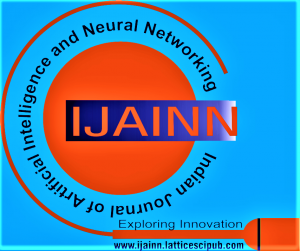![]()
Achieving Fairness with Intelligent Co Agents
Katha Rohan Reddy
Katha Rohan Reddy, Department of Computer Science, Beside TCS Synergy Park, Gachibolwi, IIITH, Hyderabad (Telangana), India.
Manuscript received on 22 November 2023 | Revised Manuscript received on 13 December 2023 | Manuscript Accepted on 15 December 2023 | Manuscript published on 30 January 2024. | PP: 11-13 | Volume-4 Issue-1, December 2023 | Retrieval Number: 100.1/ijainn.A1080124123 | DOI: 10.54105/ijainn.A1080.04011223
Open Access | Editorial and Publishing Policies | Cite | Zenodo | Indexing and Abstracting
© The Authors. Published by Lattice Science Publication (LSP). This is an open access article under the CC-BY-NC-ND license (http://creativecommons.org/licenses/by-nc-nd/4.0/)
Abstract: Fairness in resource allocation is a important problem that has many real life consequences. Althoughmany algorithms that try to achieve envy free allocation, proportionality or min max share were proposed that tries to encapsulate fairness this does not suffice because it was inherently assumed that agents are not intelligent and there is uniformity in treatment. This is vastly different from real life where there are many scenarios where agents would actively try to sabotage or reduce the allocation given to their adversaries. Therefore all agents must not be treated the same way. As seen in economics cartels are where certain players collaborate and try to maximize their interest by undermining competition. This could lead to dangerous consequences and unfair means as seen withreal life examples of apple or google undermining competition by monopoly as explained clearly in (Das, Dhamal, Ghalme, Jain, & Gujar, 2022 [1])
Keywords: Economics, Undermining Competition, Life Consequences
Scope of the Article: Intelligent System Architectures
